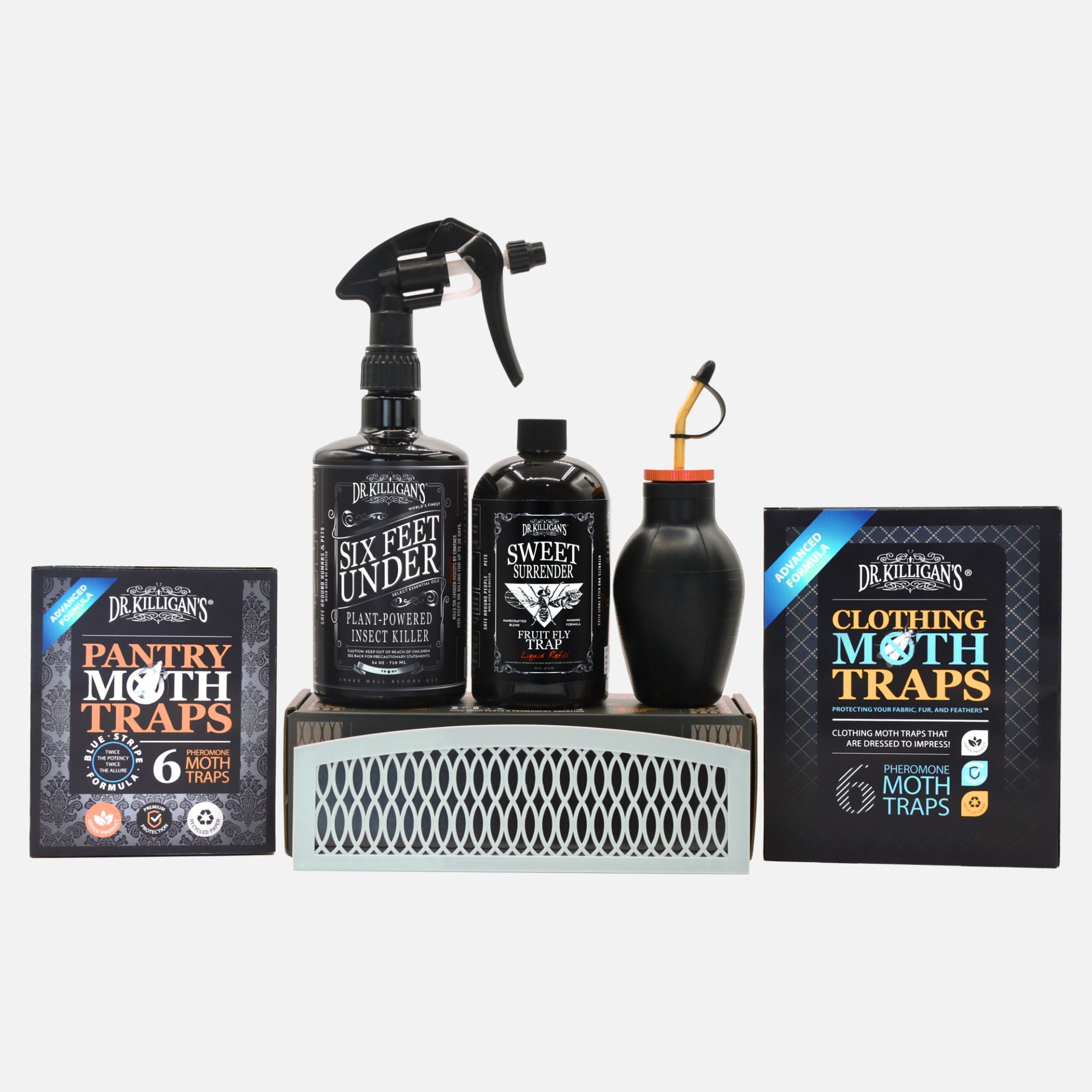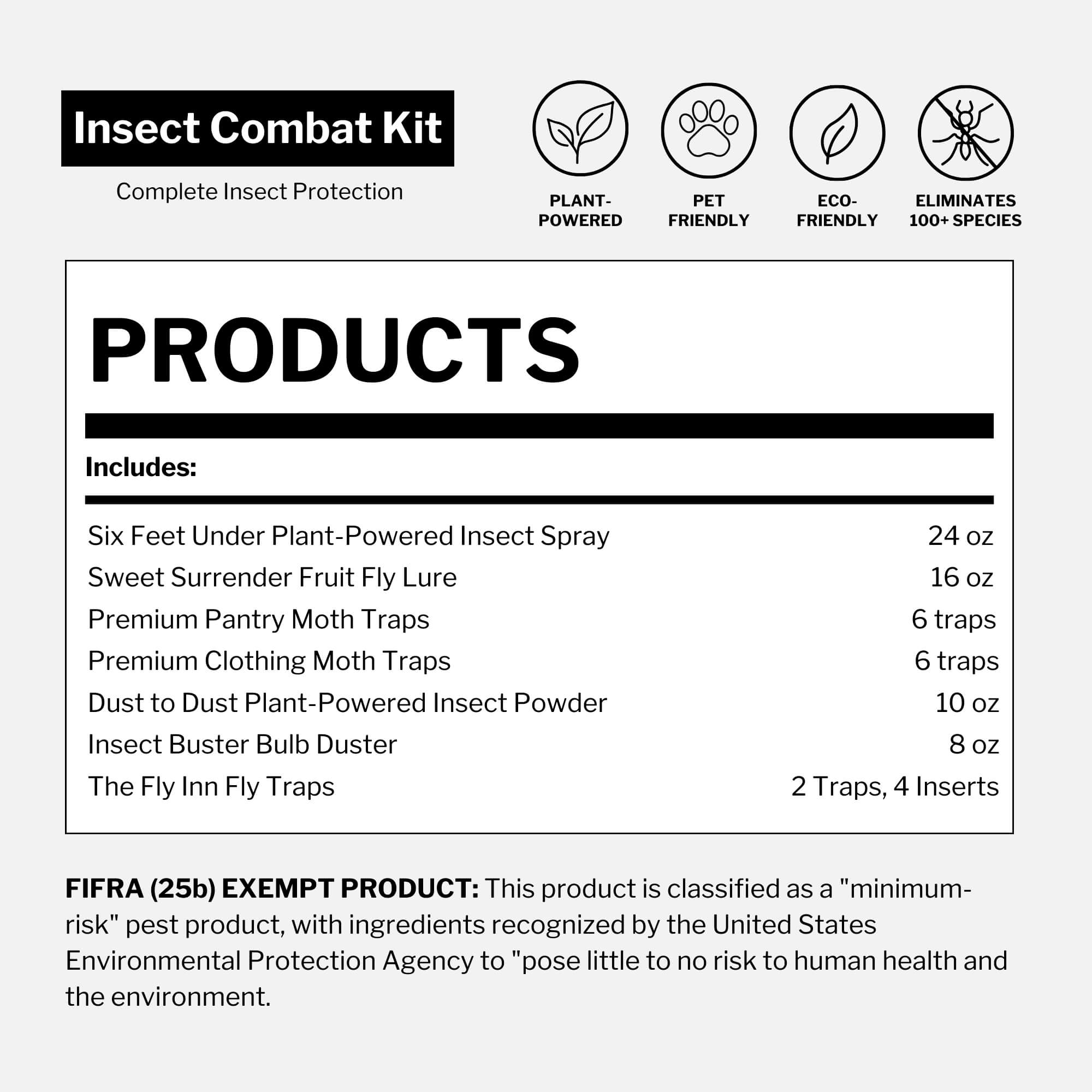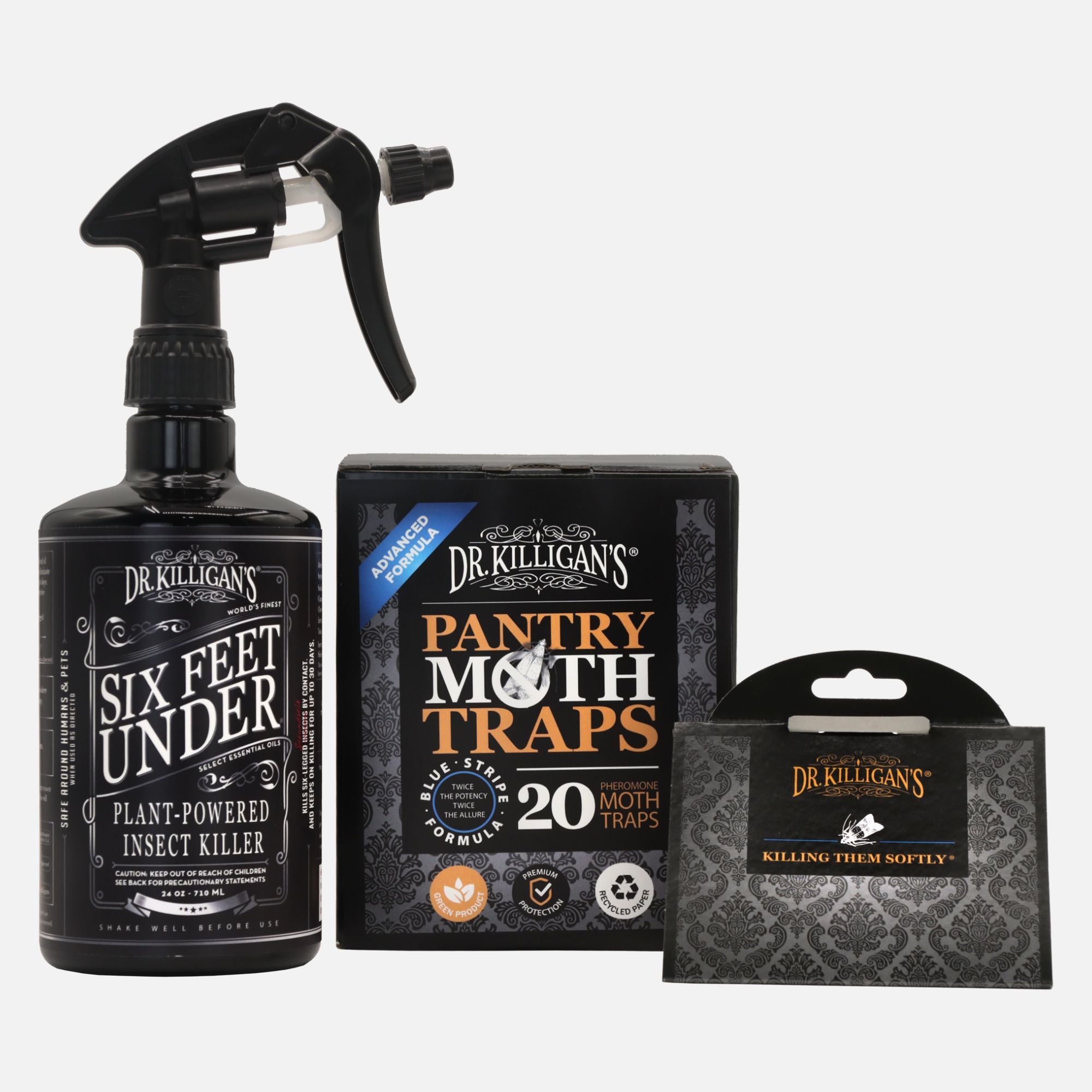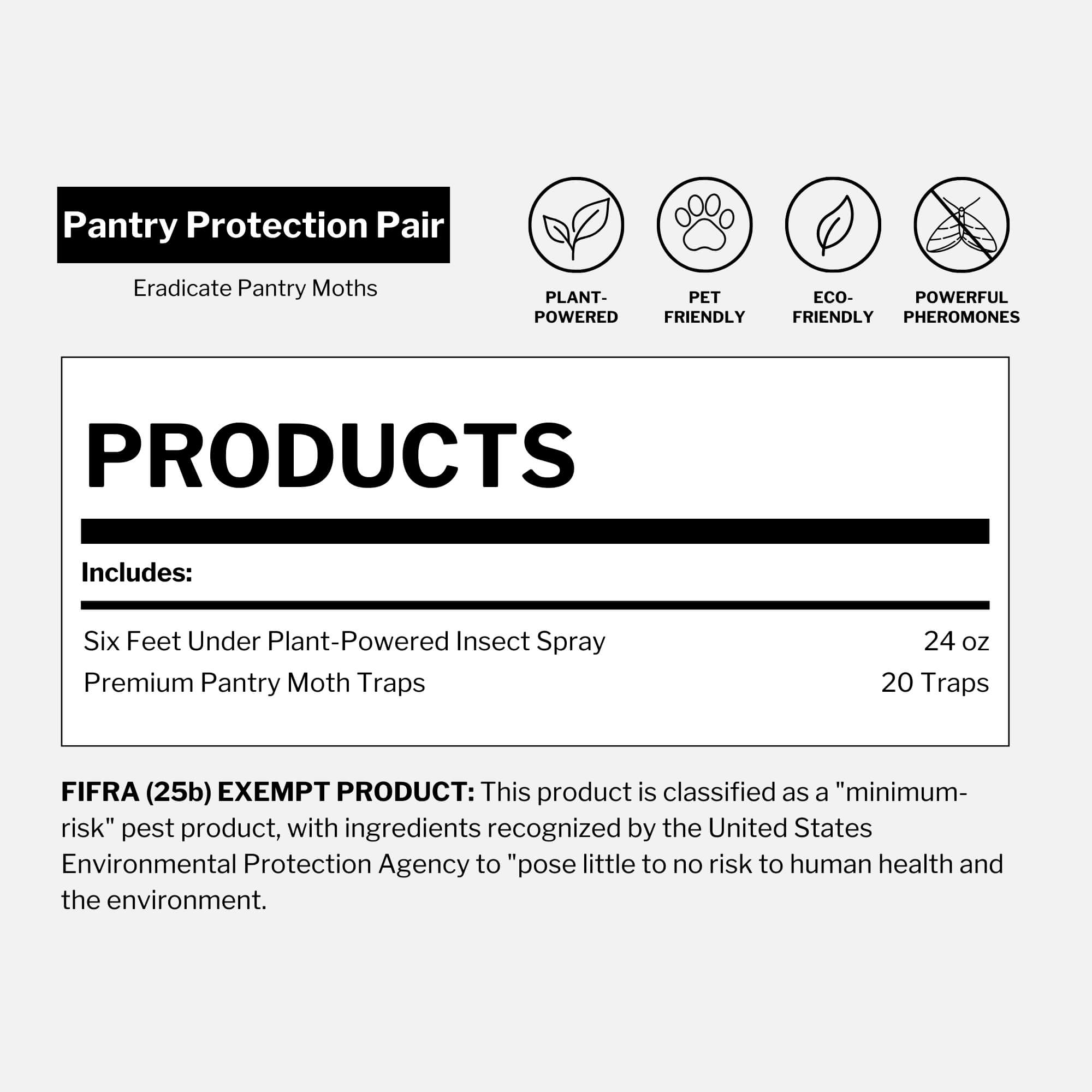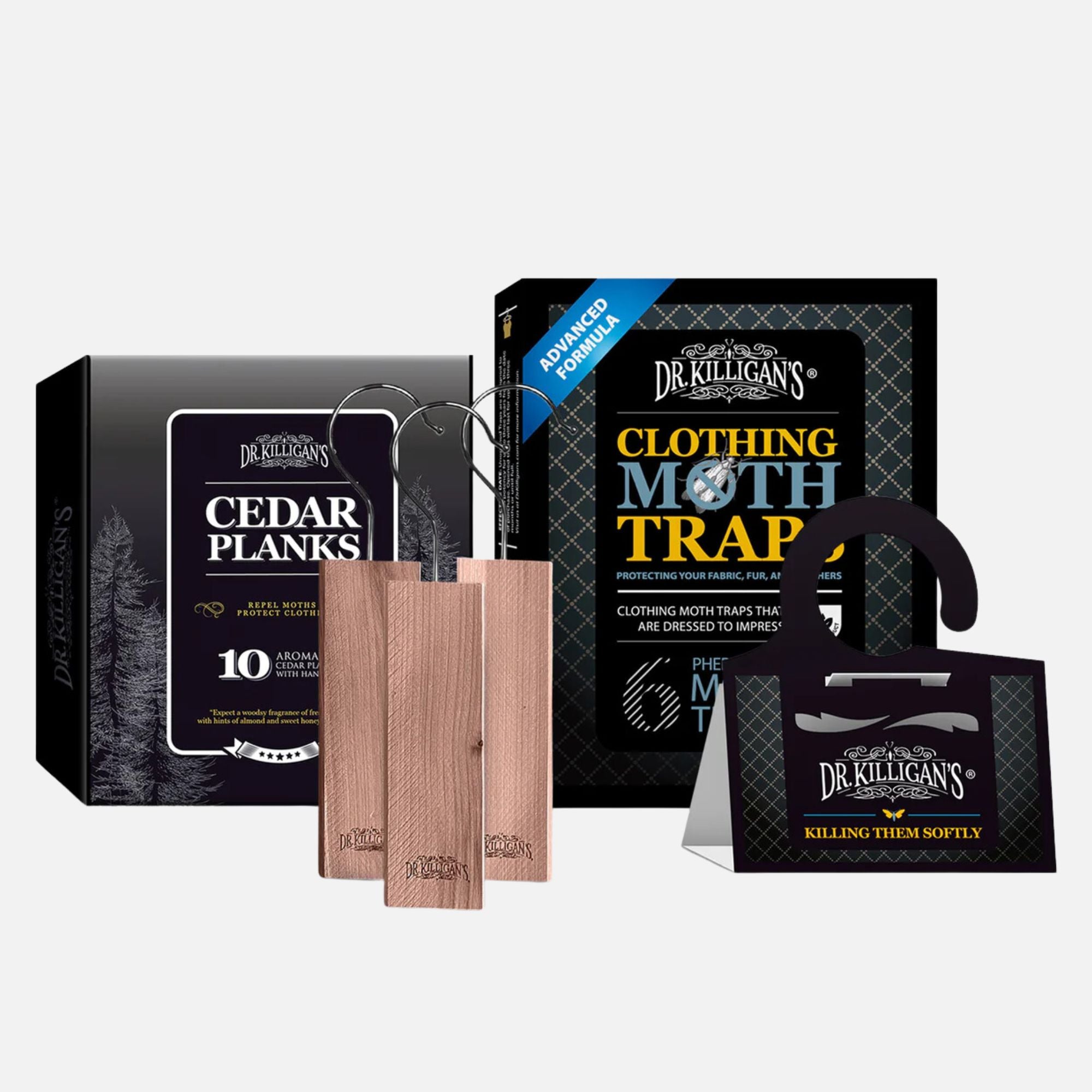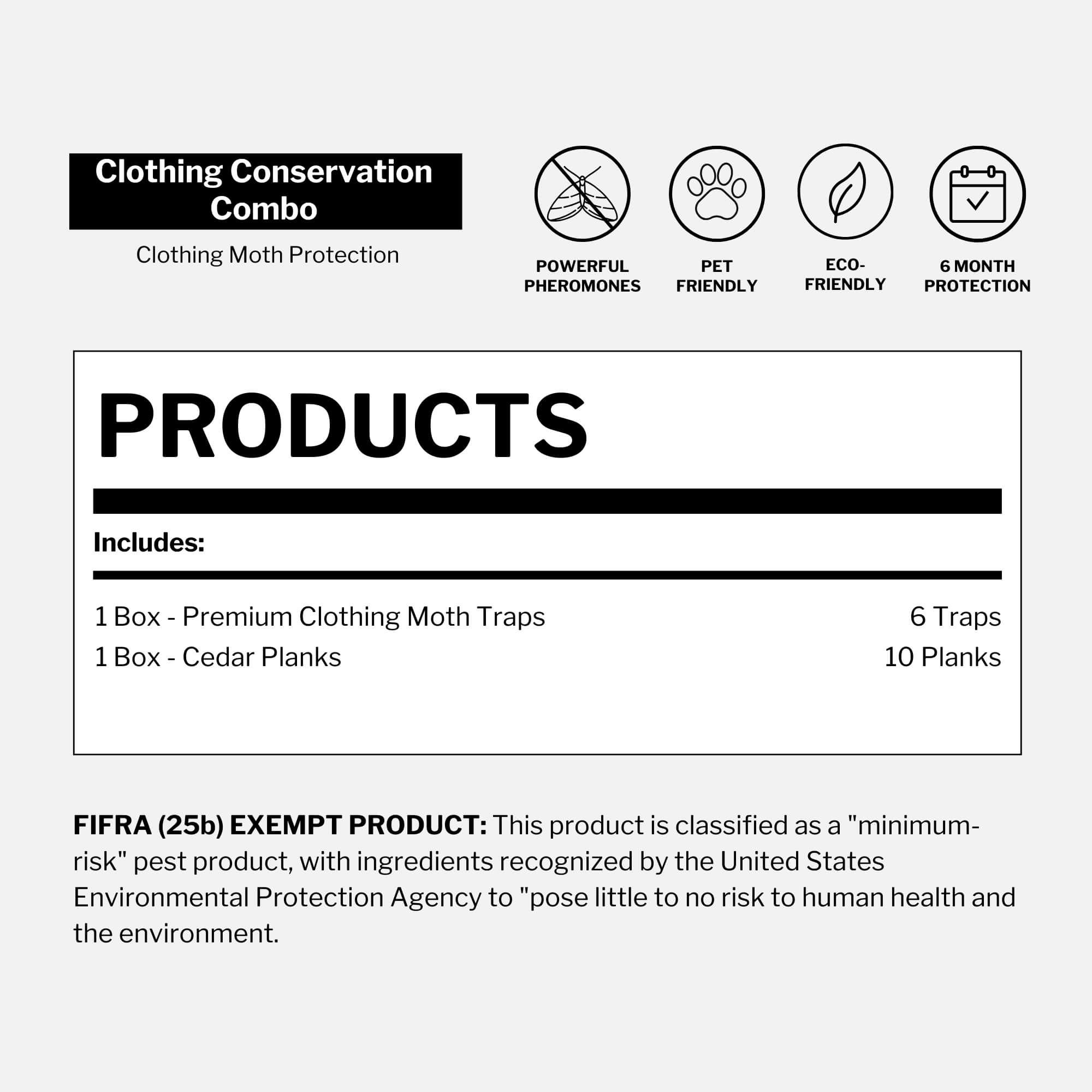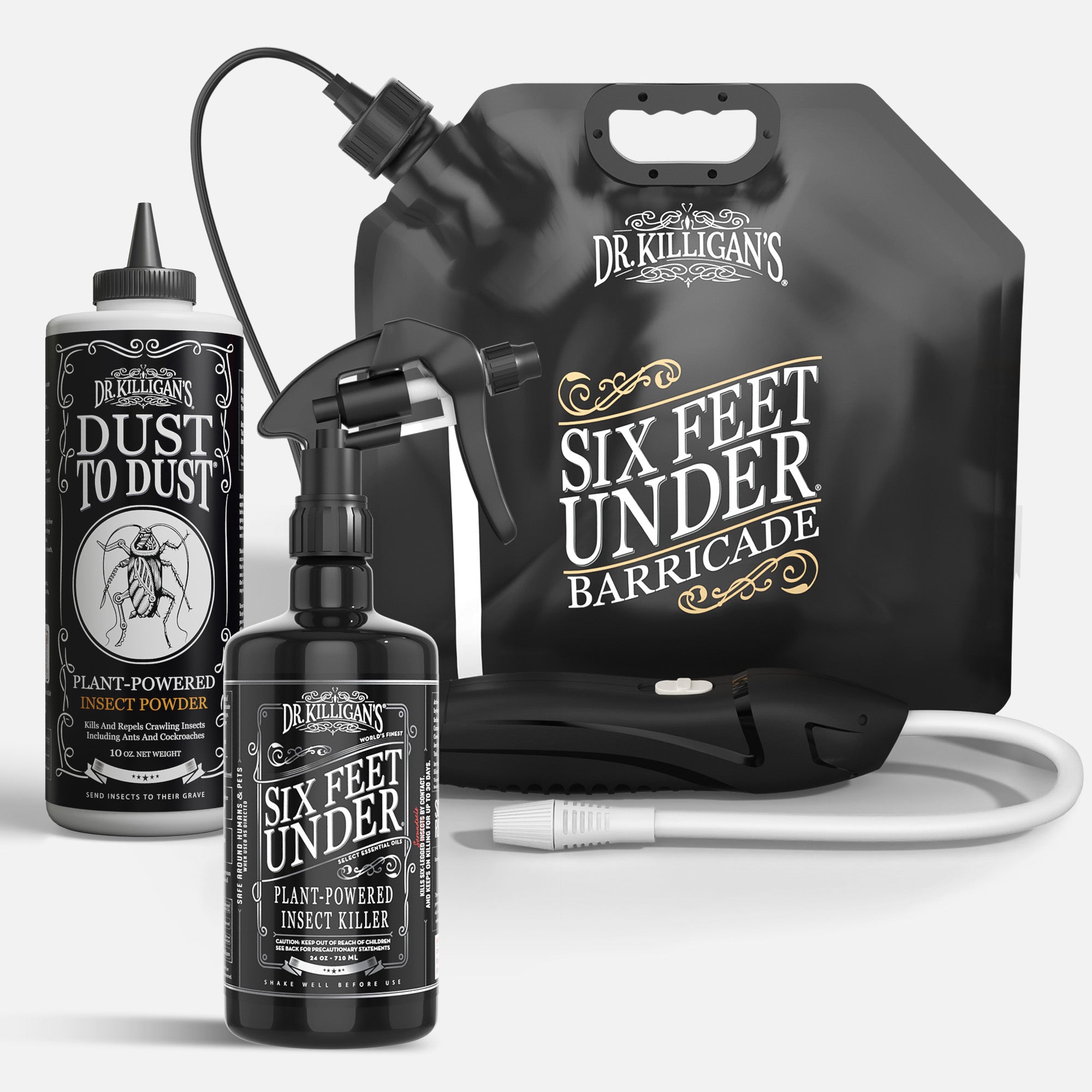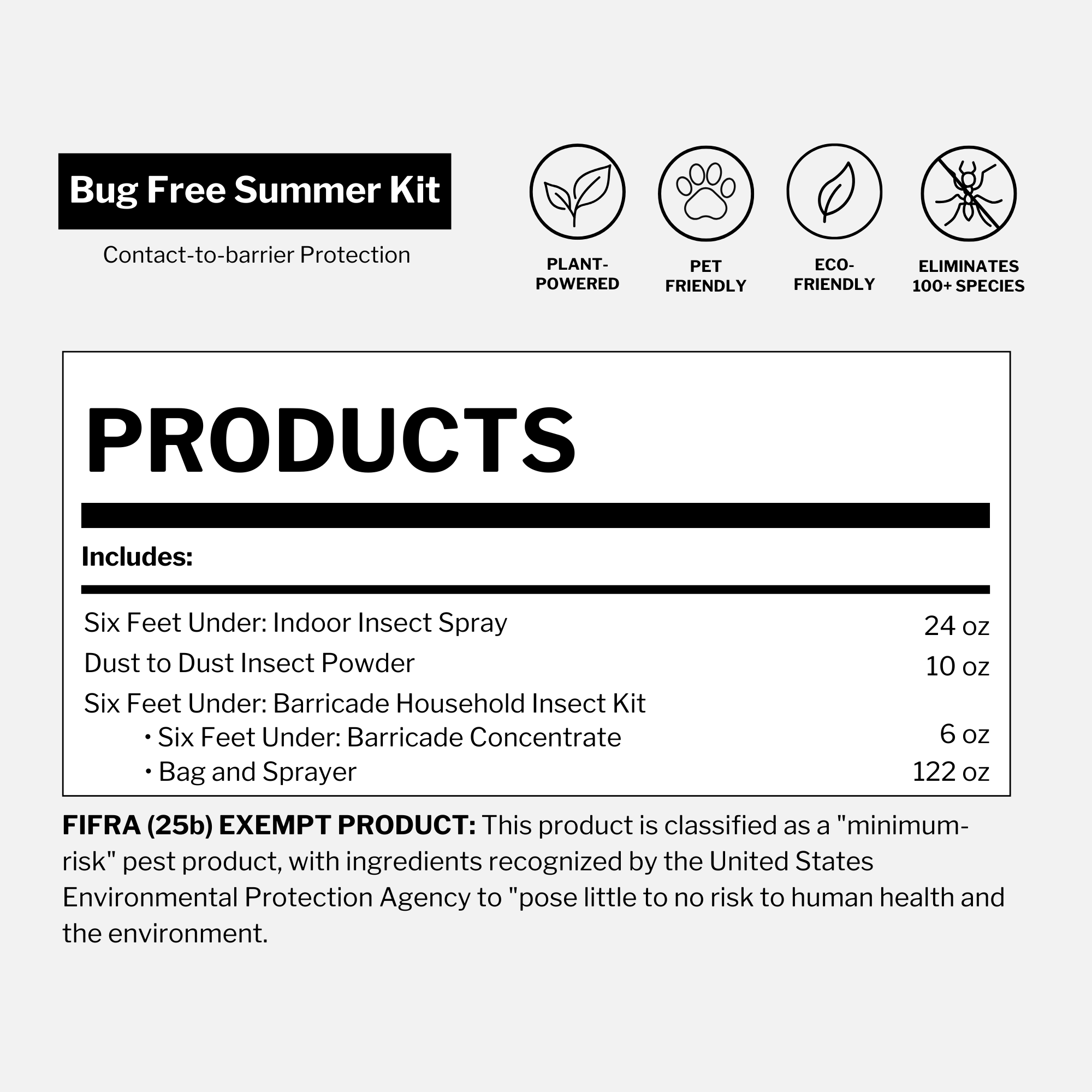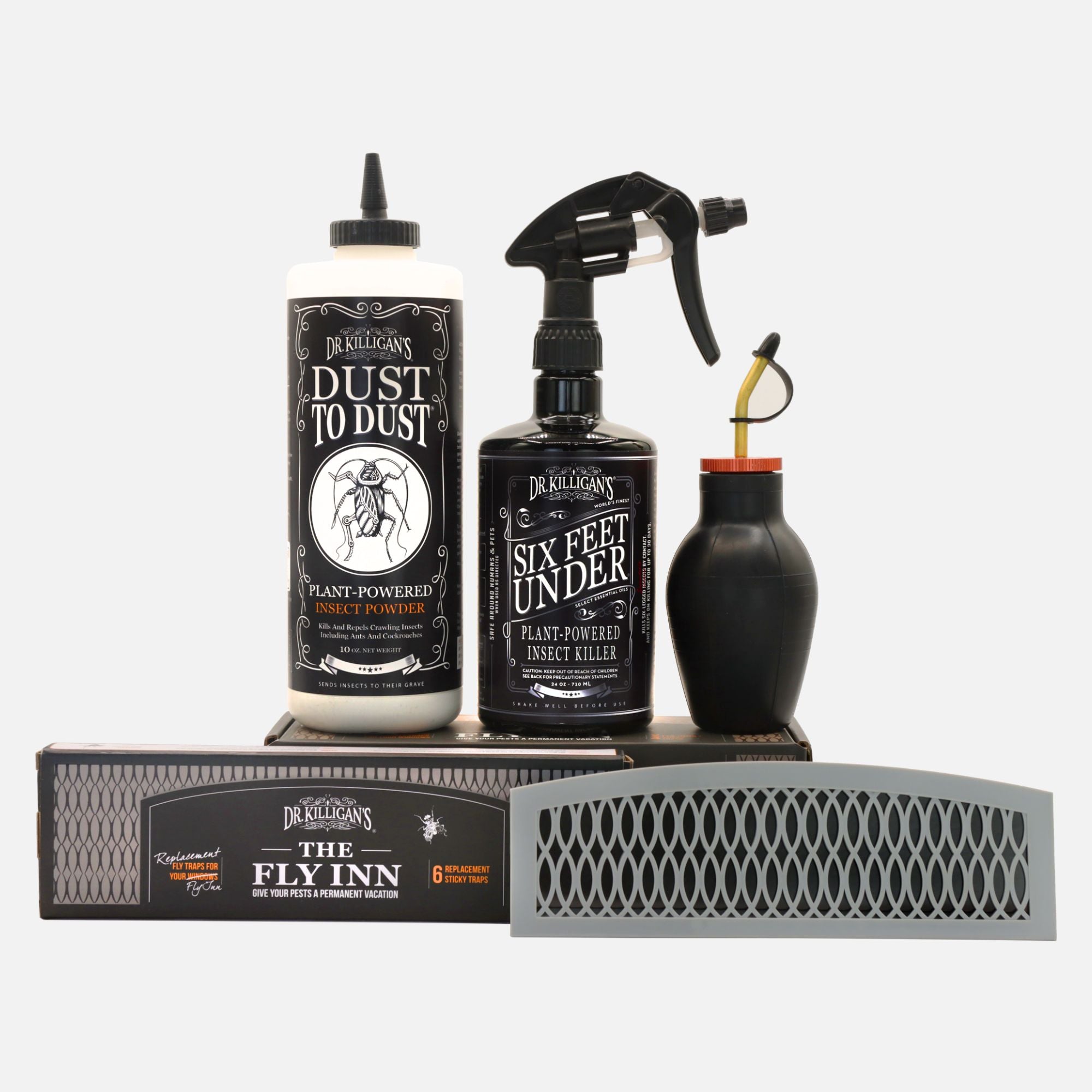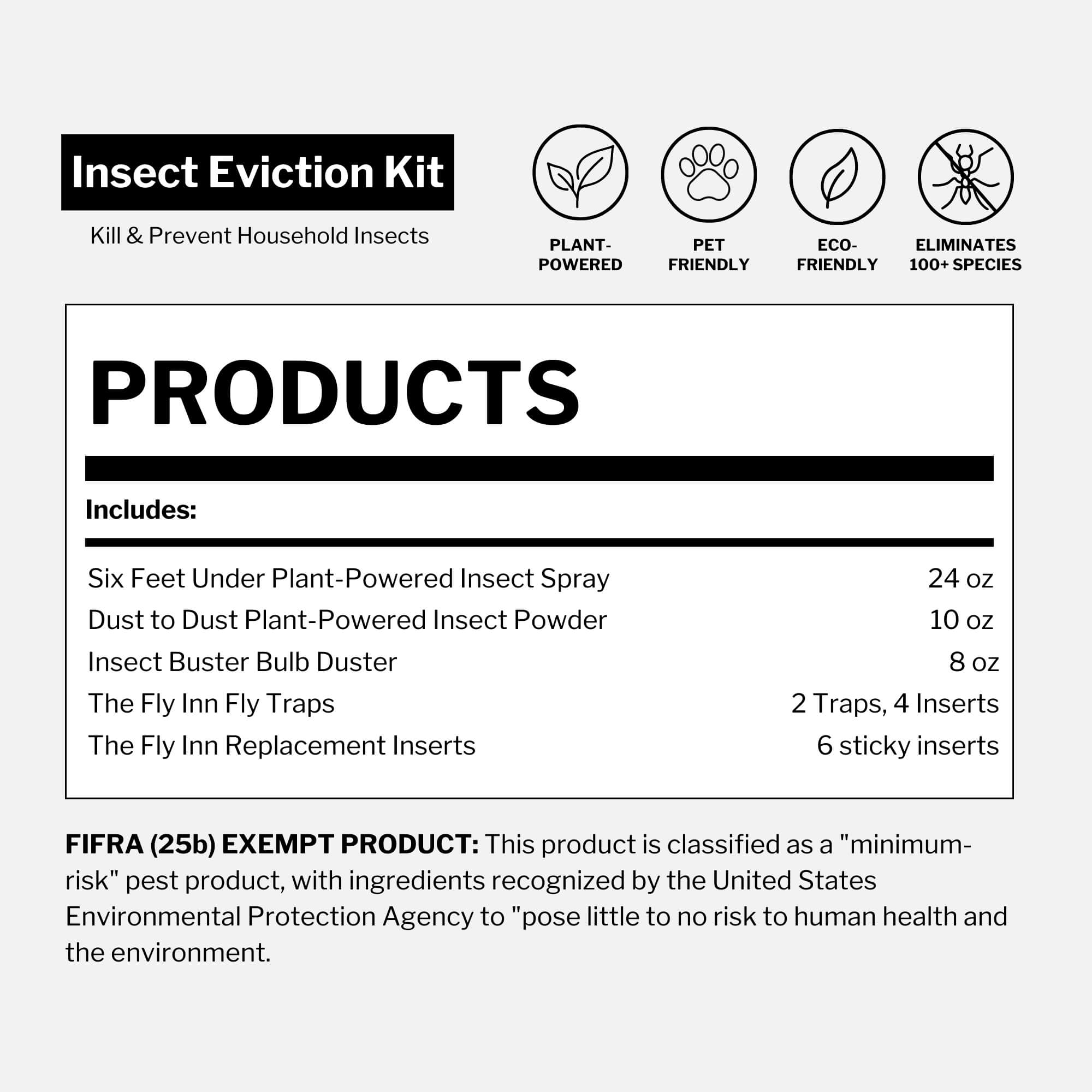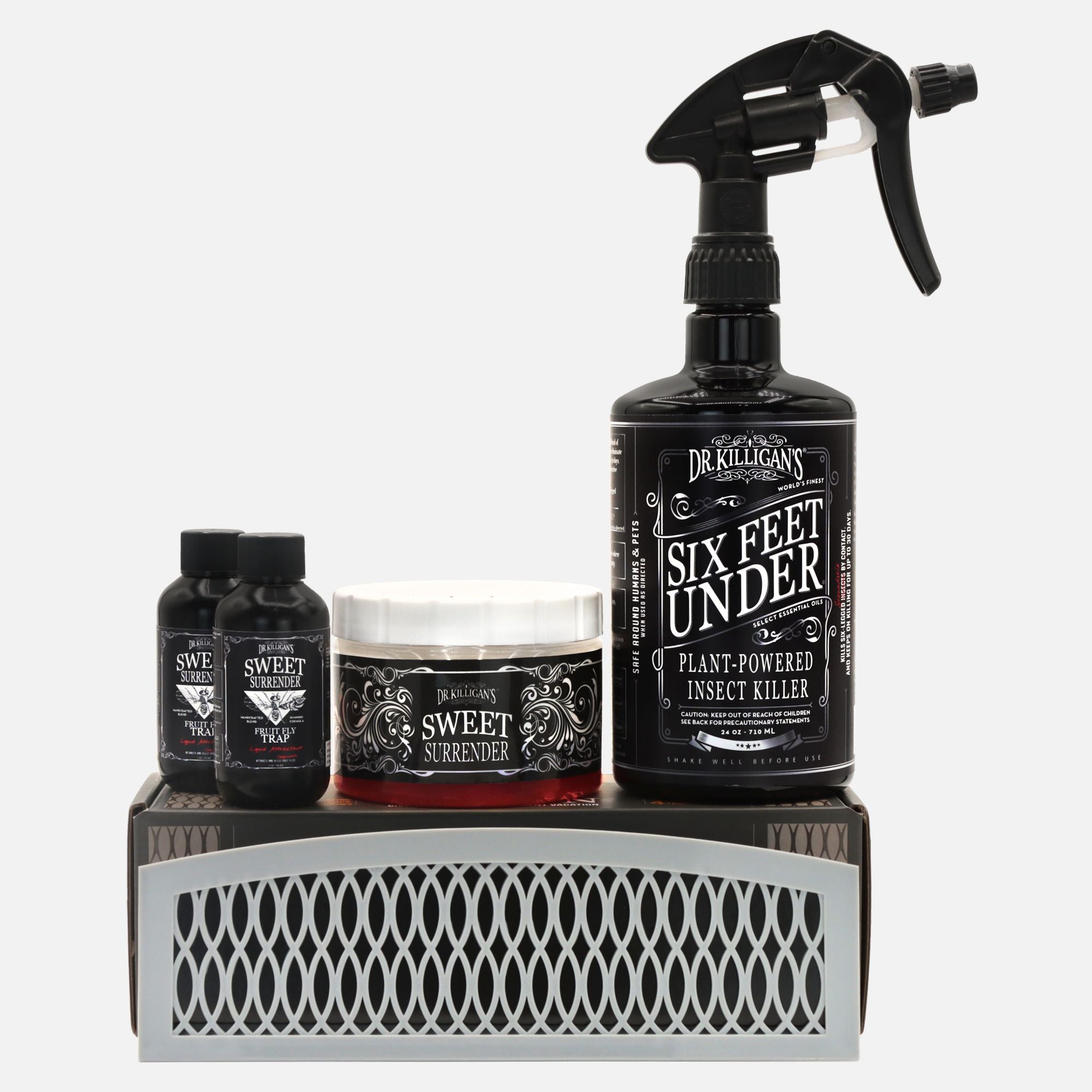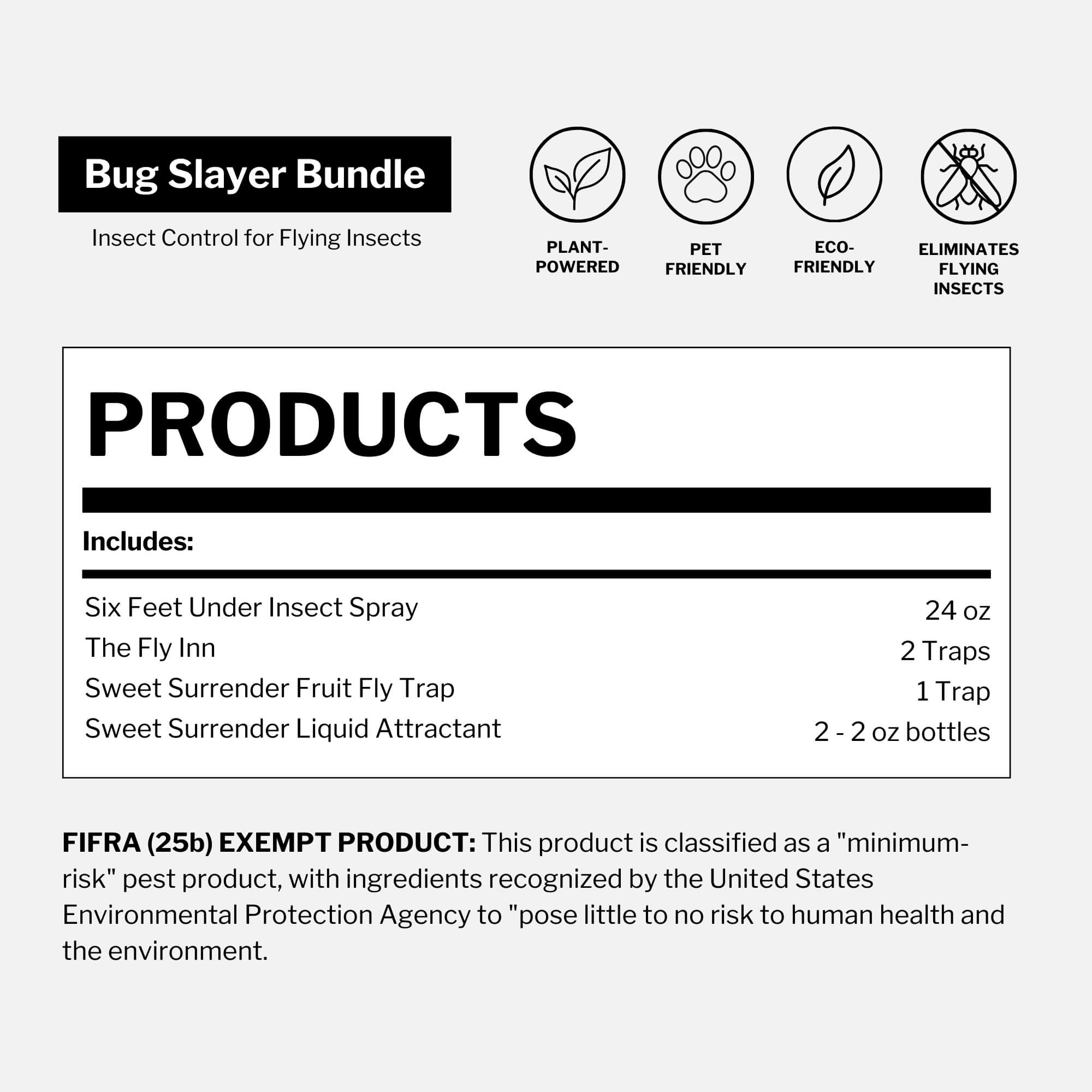Updated on May 1st, 2025
Nature has always given us potent weapons in the timeless struggle against pests. Foremost among these is cedar, revered for its ancient protective qualities. Yet as time progresses, so does our need to refine and strengthen these natural defenses. That’s where Cedar Ward comes in—a powerful cedar oil spray that combines tradition with innovation to protect your home naturally.
Dr. Killigan’s Cedar Ward is the premier cedar spray. Let’s explore why it should be your first line of defense in natural pest control.
Harnessing the power of cedar oil spray
Cedar Ward is a highly concentrated cedar oil spray designed for lasting protection indoors—refining what traditional cedar remedies have done for generations.
Cedar's inherent protective qualities can diminish with time, due to:

- Exposure to the elements: Weather and environmental conditions can degrade cedar.
- Aging: As cedar ages, it naturally loses some of its potency.
- Natural wear: Regular wear and tear can reduce the concentration of aromatic oils.
These factors weaken its innate repellency over time. To counteract these issues, Cedar Ward is crafted as a premium cedar spray that:
- Rejuvenates: Refreshes and restores the aromatic oils of cedar.
- Amplifies: Enhances the inherent repellent properties of cedar.
- Protects: Offers a renewed protective aura to maintain cedar’s effectiveness.
Empowering cedar's potential
Cedar oil as pest control has a long-standing legacy in natural home defense. Cedar Ward builds on that tradition with high-performance formulation—elevating the power of cedar with high concentrations of active compounds like cedrol to deliver proven, science-backed results.
Central to Cedar Ward is its revitalizing nature. Comprising 20% cedarwood oil—extracted from the juniper of the Cupressaceae family—its efficacy in pest control is unparalleled. Historically recognized as a potent fungicide, molluscicide and insect repellent, it is your shield against pests like clothing moths, cockroaches, carpet beetles and silverfish.

To further explain cedar's natural potential, consider these research findings:
1. Urban pest study by Dr. Arthur G. Appel, Ph.D.: Research from Auburn University highlights cedar's efficacy in repelling brown-banded and German cockroaches and firebrats, with increased effectiveness proportional to the amount of cedar applied. The study confirmed cedar's role as a repellent, not a pesticide, over a seven-day exposure. Read the full study.
2. Traditional knowledge and scientific validation: A 1975 study by Sabine identified two compounds in cedar, cedrene and cedrol, that disrupt pest reproductive cycles, targeting pests like the peanut trash bug, Indian meal moth and forage mite. Read the full study.
3. Studies on clothes moths and carpet beetles: Studies by Huddle and Mills (1952) and Laudani and Clark (1954) demonstrated that cedar oil vapors repel and kill clothes moths and carpet beetles, known for their destructive habits in wardrobes and on carpets. Read the full studies.
These studies reinforce the profound effectiveness of cedar oil in repelling and disrupting the lifecycle of various pests. By incorporating Dr. Killigan’s Cedar Ward into your pest control regimen, you are leveraging a method backed by scientific evidence, ensuring your living spaces are safeguarded in an effective and environmentally conscious manner.
Key components of cedarwood oil:
- High cedrol content: Cedarwood oil’s potency largely stems from its rich cedrol content, which is pivotal for repelling a range of pests, particularly mosquitoes and moths.
- Enhanced by active compounds: Additional compounds like β-Caryophyllene and γ-Eudesmol amplify the oil's repellent efficacy, providing a comprehensive shield against pests.
- Superiority of cedarwood oil Virginia: The cedarwood oil from Virginia is especially notable for its higher cedrol concentration compared to its Texas counterpart, endowing it with superior insect repellent capabilities.
- Presence of terpenes: Cedar planks contain terpenes—volatile organic compounds of cedarwood oil that provide a powerful, natural repellent against clothes moths and other pests.

Using Cedar Ward is straightforward: Cedar Ward is available as a one-ounce spray. Simply spritz onto bare, unsealed cedarwood until saturated. As the wood absorbs it, it refreshes the cedar, rejuvenating and enhancing its repellent qualities. A quarterly application ensures continuous protection while leaving behind a pleasant cedar aroma. If you have Cedar Planks, revive them with Cedar Ward too.
This cedar oil bug spray is ideal for closets, drawers, trunks and other enclosed spaces where fabric-loving insects might gather.
Enhancing indoor environments with Cedar Ward
In addition to its potent pest-repelling capabilities, Cedar Ward offers significant benefits for maintaining a healthy indoor environment. Its unique properties extend beyond simple pest control, contributing to a more inviting and healthier home:
- Moisture control: Cedar Ward leverages the natural moisture-absorbing qualities of cedarwood. By enhancing these properties, Cedar Ward helps maintain lower humidity levels in your home. This is particularly beneficial in damp areas, creating conditions that are less hospitable to pests—like moths and silverfish—that thrive in moist environments.
- Mold and mildew deterrence: The improved hygroscopic ability of treated Cedar Planks significantly reduces the risks of mold and mildew growth, common in moist conditions. This helps in keeping the environment healthier and preventing the conditions that attract various pests.
Marrying safety and effectiveness
At Dr. Killigan's, our ethos revolves around creating solutions that are safe and potent. Cedar Ward is a testament to this commitment. The primary ingredient—biodegradable cedarwood oil derived from sustainably sourced cedar trees—is recognized for its repellency and its benign nature.
The U.S. Environmental Protection Agency (EPA) recognizes the minimal risks associated with products like Cedar Ward. This is a testament to our dedication to ensuring environmental and personal safety. When you introduce Cedar Ward into your living space, you're choosing an eco-conscious guardian.
The pitfalls of synthetic solutions: A closer look at mothballs
In the vast world of pest control, mothballs have long been a popular synthetic solution, praised for their effectiveness. However, the core ingredients of mothballs—primarily naphthalene or paradichlorobenzene—pose significant concerns:

- Highly toxic: Mothballs consist almost entirely of potent pesticides, making them a double-edged sword in pest control.
- Risks to humans and pets: While effective against moths, these chemicals are hazardous to both pets and humans, particularly when inhaled over prolonged periods.
- Health complications: Regular exposure to the strong fumes of mothballs can lead to serious health issues, raising questions about the trade-off between protecting garments and maintaining health.
Why choose Cedar Ward over mothballs?
In contrast, Dr. Killigan’s Cedar Ward offer a safer and more environmentally friendly alternative. Here's why Cedar Ward stands out:
- Safety: Cedar Ward products are plant-powered and free from artificial dyes and harsh chemicals, making them a safe alternative to synthetic pesticides when used as directed.
- Sustainability: Cedar is a renewable resource, and Cedar Ward’s commitment to sustainability appeals to environmentally conscious consumers, reducing your carbon footprint while promoting responsible living.
- Effectiveness: Offering long-lasting protection against pests like moths, Cedar Ward eliminates the need for frequent replacements, unlike mothballs.
- Pleasant scent: The natural aromatic cedar scent enhances your storage spaces, a far more inviting aroma compared to the pungent odor of mothballs.
- Versatility: With a range of products, Cedar Ward allows you to customize your pest prevention strategy, ensuring effective coverage for all your needs.
- Historical efficacy: Cedar has been used since ancient times for its pest repellent properties, trusted by civilizations like the Ancient Greeks who stored valuable garments in cedar chests.
When faced with the choice between harmful chemicals and the natural efficacy of cedar, Cedar Ward clearly emerges as the more prudent, effective and pleasant option for protecting your belongings and maintaining a healthy home environment.
Honoring cedar’s rich legacy

Eastern red cedar and other species in the Cupressaceae family have long been valued for their aromatic and pest-repelling oils. This tree, laden with essential oils, boasts a rich historical tapestry of diverse uses.
From ancient civilizations employing cedarwood in religious ceremonies to its incorporation in traditional medicines for its aromatic and therapeutic benefits, the cedar tree has left an indelible mark on human history. Through Cedar Ward, we harness this legacy, offering you a potent shield fine-tuned for modern challenges.
Choose proactive protection with Cedar Ward
Cedar Ward is the cedar oil spray trusted by households for safe, plant-powered pest control.
Pest protection isn't reactive—it's proactive. Now is the time to embrace the protective might of Cedar Ward. Protect your clothes, refresh your Cedar Planks and relish the tranquility, secure in the knowledge that Dr. Killigan's is watching over you. And as always, Cedar Ward is backed by Dr. Killigan’s 100% satisfaction guarantee.
Lead the way in pest control. Opt for Cedar Ward today for a future free from pests. Your prized possessions merit this. Why wait? Take action today and let nature’s best defend you.

